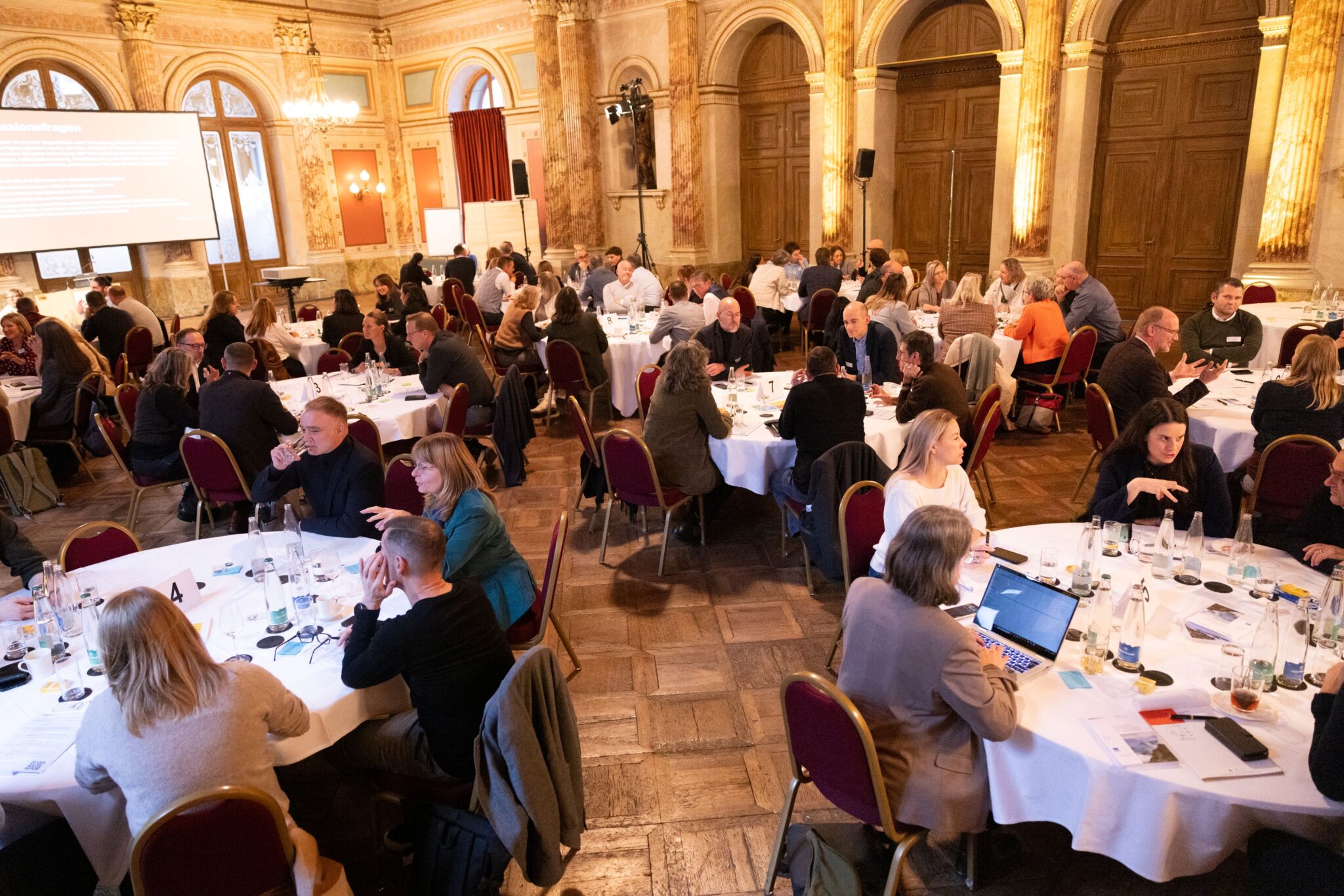CAS Leading Global Teams and Projects
With the CAS Leading Global Teams and Projects, the Lucerne University of Applied Sciences and Arts - Business supports leaders in identifying und implementing the right solutions. Participants focus on four core challenges of international leaders

Leading across Cultures
Regardless of mission and size, organizations increasingly become international players in their respective sectors, conducting business and competing on a cross-country scale. This raises the stakes for leaders to identify solutions to pressing international and intercultural challenges, thereby finding their way in the global village.
: How do I internationalize the DNA of my organization? What are the key success factors that need to be considered when conducting business internationally? How do I continuously develop my own intercultural competence? And how do I lead a diverse team of employees and external stakeholders, both directly and virtually?
To tackle these leadership challenges, respected experts from both academe and practice deliver customized content. Participants gain immediate international experience in Asia, North America and Europe, through selected International Weeks. During these International Weeks, the international leadership challenges become concrete as a direct result of partner universities being committed to offering advanced training opportunities on the ground that encompass both lectures and site visits to key organizations and stakeholders.
The CAS Leading Global Teams and Projects places great importance on preparing the participants for the international arena, thus enabling them to take the right decisions at the right time. For this purpose, we offer a personalized, varied and challenging study environment at different institutions spread across different continents.
For more information: www.hslu.ch/leadgtp
Interview with Jillaine Farrar and Ingo Stolz about their executive-education program Leading Global Teams and Projects (CAS).
LNL: Mrs. Farrar, Mr. Stolz, together you co-head the CAS Leading Global Teams and Projects. For whom did you design this program?
Farrar: We designed the program for current and prospective leaders who interact with international stakeholders, both at home and abroad. These individuals strive to identify and shape both effective and interculturally sensitive solutions for themselves and their organizations and aim to successfully address their specific management challenges when conducting business on a cross-national scale.
Stolz: What we would like to achieve together with this audience is ambitious. At the end of the program, graduates should be able to apply techniques for increasing the international responsiveness and competitiveness of their respective organization, to forecast likely international leadership and management challenges, to broker fitting solutions based on a clear understanding of divergent stakeholder needs and expectations, and to use the strengths present in their teams for building bridges across the differences and by removing obstacles in situations of conflict and crisis.
LNL: What are the key parts of your program?
Stolz: Over the course of one year, participants move through four phases. In phase one, we lay the foundation for successful international leadership. For this foundation, we focus on the four core challenges that we believe international leaders need to address and solve: internationalizing their organization, being able to expertly decipher intercultural differences, developing intercultural sensitivity for bridging these differences, and developing leadership behaviors that are conducive and acceptable across cultures. In phase two, participants are assessed on their intercultural competence, receiving personalized international leadership coaching and developing a personal leadership development plan. In phase three, participants attend two International Weeks that offer both international leadership training and experience abroad. In phase four, participants transfer and apply their learning to the specific international leadership challenges they face, and present the results of that transfer in both a written and oral format.
Farrar: Over the course of these four phases, participants continuously and directly encounter the international dimension. Phases one and two take place in Lucerne with international lecturers. In phase three, participants choose two of the International Weeks offered in Tallinn/Helsinki/Petersburg, Vancouver, Constance, Bangkok and San Sebastian/Bilbao.
LNL: How do these four phases play out over the course of one year?
Farrar: The program starts in June 2022 with sessions aimed at ensuring a solid foundation. Then, during the summer, the coaching and personal development plans will be set. Depending on the choice of the two International Weeks, participants study in Tallinn/Helsinki/Petersburg in July 2022, Vancouver in October 2022, Constance in October 2022, Bangkok in February 2023 and/or San Sebastian in April 2023. The program ends with presenting the transfer results in June 2023.
Stolz: After successfully completing the program, participants will receive their CAS diploma and 15 ECTS. Participants have a similar workload to other CAS programs at our university. Given the unique international format, however, the workload is spread out across one year, with peaks in June 2022 with the foundation sessions and during the two visits of the International Weeks.
LNL: Can you tell us something about yourself? Why are you passionate about this topic?
Stolz: Living internationally and interculturally was and is a hobby of mine. Before joining the Lucerne University of Applied Sciences and Arts – Business, I lived and worked abroad for 15 years, changing locations every other year. Over the course of this period, I was lecturer, manager and leader in Russia, China, the US and Belgium, and also spent considerable time in France, Morocco and Mexico. In addition to this practical experience, I completed my PhD in one of the highest-ranked programs with a strong international focus at the University of Minnesota. The CAS Leading Global Teams and Projects allows me to bring my experience and my expertise to the classroom, for others to benefit. Further, I learn continuously myself by becoming ever more international and intercultural – which is a fascinating and lifelong occupation. I am very happy to be able to launch the CAS Leading Global Teams and Projects, and to share this passion with students. Also, I am happy to be able to fill a gap in executive education, given that no such program currently exists in Switzerland.
Farrar: International is an important part of all parts of my life. I was born in Vancouver, Canada and moved to Switzerland in 1989. Both Switzerland and Canada are now my home. I studied at the University of Manchester in GB and graduated with a Master in Education. My research in international and intercultural leadership bring great joy to me. In addition to the international experience gained from working in various international companies in Switzerland and taking various continuing-education programs, my international exchange work at the Lucerne University of Applied Sciences and Arts-Business has provided a solid basis to launch the CAS Leading Global Teams and Projects. This is not only a milestone; it also allows me to share my passion for international and intercultural.
LNL: How do you intend to bring your passion for international leadership across?
Farrar: Our teaching style focuses on behavior, action and transfer. This means that we strive to make learning concrete, so that it can be directly applied in the respective student contexts. This also means that sessions are taught by experts with rigorous academic standards and are steeped in international practice. Moreover, we believe that the international dimension needs to be experienced in person. This is why we offer well-designed opportunities for international learning through our International Weeks.
Stolz: Also, our assignments reflect this experienced-based and practical approach. During the program, participants work on an international leadership topic of immediate relevance to their work or personal development, and write an individual paper of approx. 15 pages. They work on this assignment for the duration of the program – benefiting from their new knowledge and experience – and receive repeated feedback from both faculty and peers. With completing this assignment, participants achieve something of personal and professional relevance, which they can apply directly to their respective contexts.
CAS Leading Global Teams and Projects
Leading internationally, locally and virtually
We develop leadership capacity for the 21st century, when building success across borders becomes a leader’s daily business. Find here online information events


Kommentare
0 Kommentare
Danke für Ihren Kommentar, wir prüfen dies gerne.